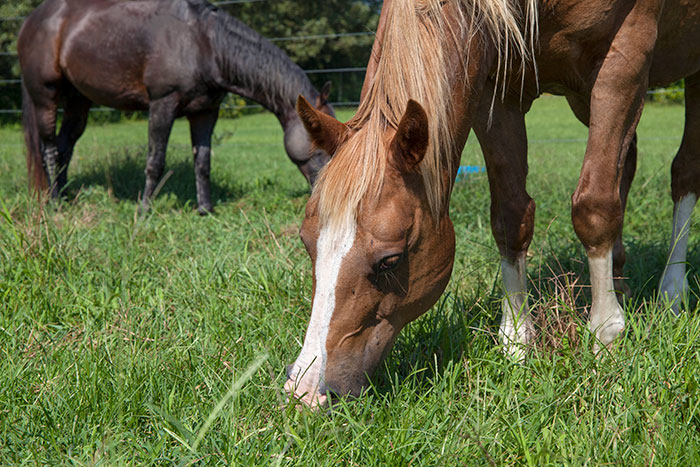
Horses have always had their own unique set of grazing preferences and potential maladies caused by pasture forage consumption.
Once a killing frost occurs, there are several precautions to be cognizant of if your horses are still on pasture, according to Krishona Martinson, extension horse specialist with the University of Minnesota (UM).
“Frost damaged pastures can have higher concentrations of nonstructural carbohydrates, leading to an increase in the potential for founder and colic, especially for horses diagnosed with Equine Metabolic Syndrome, laminitis, obesity, or Cushings,” Martinson explains in UM’s Horse Newsletter. She recommends pulling horses off of pasture for about one week following the first killing frost.
Maple leaf toxicity
Another potential danger not anticipated by many horse owners are dead maple leaves that either fall or blow into horse pastures.
“Ingestion of dried or wilted maple leaves is associated with toxicosis in horses,” Martinson explains. “Toxicosis normally occurs in the autumn when normal leaf fall occurs. Red blood cell damage has been shown to occur in horses ingesting 1.5 to 3 pounds of dried leaves per 1,000 pounds of bodyweight,” she adds. This phenomenon only occurs with dried or wilted leaves, not fresh, green maple leaves.
The only reports of maple leaf toxicity are with horses. The symptoms include animals that are often depressed, lethargic, and anorexic with dark red/brown urine after the first day of ingestion. In severe cases, horses may go down with labored breathing and an elevated heart rate. Maple leaf toxicosis can be lethal.
“Fence horses out of areas where wilted maple leaves are abundant,” Martinson advises. “Although dried leaves may remain toxic for four weeks, they are not generally believed to retain toxicity the following spring.”
As a general rule, Martinson suggests pulling horses off fall pastures when the grass height is about 4 inches. She then says to clip or mow grasses to a uniform 4-inch height and drag the pasture to disperse any manure.
“Ideally, owners need to slowly transition horses from a pasture diet to one of dry hay in preparation for winter feeding,” Martinson says. “We do not recommend over-wintering horses on pasture due to plant damage from digging, pawing, and hoof traffic.”

